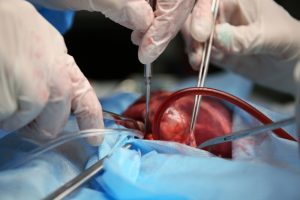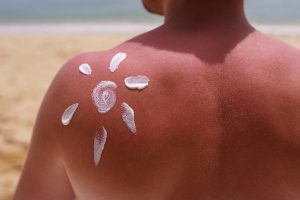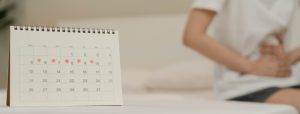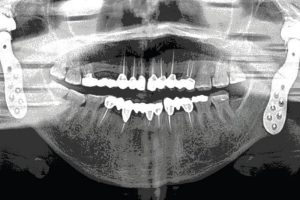Doctor On Call, or DOC for short, is a brand new series brought to you by Medical Channel Asia. This series aims to bring doctors and specialists from various fields to give you an introduction to common health and medical topics that you and the Asian population are interested in. In our 4th DOC, held on 5 Oct (Tuesday), from 8pm to 9pm (GMT+8), we have Dr Michael Ross MacDonald, consultant cardiologist from Harley Street Heart and Vascular Centre, to talk to us about The Silent Killer: High blood pressure and heart disease.
This 3-part cardiology webinar series aims to educate the Asian population on the different aspects of cardiac conditions, ranging from the risk factors of heart diseases, to the most current updates on CPR, and the types of treatment options available after a heart attack.
For Part 1 of the forum, we have Dr MacDonald give us a short presentation on why high blood pressure is often called the silent killer. In Part 2, Dr MacDonald answers some of the questions posted by our audience, both collated from the registration process, and also posted LIVE. Read below to find out the answers to some of these questions that may apply to you or your loved ones as well!
Question and Answer – Pre-collated segment
Q1: Can long-term, bad sleep patterns affect my blood pressure?
Dr MacDonald: Singapore unfortunately is a chronically sleep-deprived society. Your adrenaline and cortisol rise in the morning when you do not have good quality sleep. This cause your blood pressure to be higher. Hence, if you are chronic poor sleeper with high blood pressure, adjusting your sleep patterns can help with some of the blood pressure issues that you got.
Q2: Is there a best time to take amlodipine?
Dr MacDonald: There is no right answer to this, because every patient is slightly different as to when they need to take their medication.
Q3: Can high blood pressure be reversed successfully?
Dr MacDonald: Patients with Grade 1 hypertension (140-160 / 80-90 mmHg) – I may give them time to try out first with lifestyle modifications to lower the blood pressure. Not everyone will be successful in reversing in completely, especially for those that start with very high blood pressure.
However, if you are overweight, sedentary etc., you may have a chance to reverse the high blood pressure as you have more risk factors to reverse. But this of course takes a lot of effort to modify their lifestyle.
Q4: How do I make the decision on whether to stent multiple coronary blockages vs having bypass surgery?
Dr MacDonald: There are a few different things we look at:
- Number of blockages
- Diabetes present or absent
- Heart failure present or absent
- Age
Often we will find the pattern of disease that is important. If the blockage affects the nearest part of the arteries at the top of the heart, a bypass could be more appropriate. But it is still pretty individualised. If a diabetic patient has multiple blockages I would go for a bypass, and if it is a younger patient with a single blockage I would go for stent. It is also usually down to patient preference, so we will have that discussion.
Q5: Is a menopausal woman more prone to heart diseases?
Dr MacDonald: Women are protected from heart disease before menopause. The oestrogen makes them less like to have heart diseases. However after menopause, their risk catches up with men. They tend to get cardiovascular diseases 10 years later than men.
If you have early menopause, you may have to think about preventing heart diseases earlier than other ladies.
Q6: What is respiratory arrest? What is pulmonary cardiac arrest?
Dr MacDonald:
- A cardiorespiratory arrest – you have your lungs (gets oxygen to your blood), and your heart (pumps blood around the body).
- A respiratory arrest – when oxygen does not get into your lungs. For e.g. choking on food – unable to breathe and get oxygen into the system (brains etc.)
- A cardiac arrest – the other part of the system that goes wrong. For e.g. heart attack – heart is unable to beat and pump, cannot get blood to the organs
The arrest part can be either be driven by the breathing portion or the heart portion.
Question and Answer – LIVE
Q1: Why do I experience palpitations when I feel agitated and unable to breathe normally after? Is this a sign of heart problem?
Dr MacDonald: It could potentially be a heart problem. Palpitation is quite a non-specific sign of abnormal heart beat. In any doubts, at least you should see a cardiologist or get an ECG checked. For patients who have palpitations, I will normally fit a heart monitor with ECG and see what is going on.
Q2: What will happen if your blood pressure rises to 260/190 once in a closed area, but no symptoms? In an opened area it falls to 120/80. Is this dangerous?
Dr MacDonald: Difficult to answer with regards to the locations. Naturally blood pressure goes up and down. When we put patients on treadmills, their blood pressure may rise to 200, 220mmHg, which is actually a normal response to stress and exercise.
When weightlifting or other strenuous exercise the blood pressure can even go up higher. Short bursts of high blood pressures are not unsafe.
260/190 is an incredibly high blood pressure. I would as if the blood pressure was taken accurately, as it is unlikely for diastolic to be at 190mmHg.
Q3: Is it normal to have a higher diastolic pressure with a normal systolic pressure?
Dr MacDonald: People tend to focus on systolic, but the diastolic blood pressure is important too. We often see people with normal systolic but a persistently elevated diastolic. Recap the diagnosis of hypertension using a home BP monitor: if systolic is consistently above 135mmHg, and diastolic above 85mmHg. So potentially if you have BP of 87mmHg of diastolic, you may have hypertension.
Q4: How do we solve an enlarged heart?
Dr MacDonald: Often we will see enlarged heart, which is what we usually call heart failure. Heart failure can come back to normal with correct drug treatment.
Sometimes we may see enlarged heart on chest X-ray. We will do an ultrasound to exactly see how big your heart is, as it may sometimes be untrue. So if you have an enlarged heart on X-ray, the next step is to get a cardiac ultrasound or echocardiogram to confirm.
Q5: Is a digital BP reading inferior in monitoring BP compared to manual way of measuring BP?
Dr MacDonald: No it is not. The modern digital BP machine is highly accurate in monitoring BP. Sometimes, they can struggle though. If you have a normal regular heartbeat and sinus rhythm it is going to be accurate. However, digital BP monitors can struggle in patients with irregular heart beat.
But for most people (95%) the digital BP monitoring is highly accurate.
Q6: I have low blood pressure but I love salt and processed food. I also do not exercise or sleep much. Is there a chance I will get hypertension?
Dr MacDonald: Yes. Basically some people have very low blood pressure, often younger women. But recall that age is one of the biggest risk factors for high blood pressure. If your lifestyle is poor now, you may get high blood pressure.
Q7: What is the acceptable heart rate during exercise like walking, for a hypertensive individual on a maintenance drug?
Dr MacDonald: It depends. We set different targets based on what is wrong with the patient, and if they have got other conditions. In general resting heart rate should be less than 70, and walking heart rate should be less than 100. However, we do not specifically target any heart rate for high blood pressure patients. The most important thing is their blood pressure control.
Q8: Can a person stop taking high blood pressure medications, if his blood pressure normalises consistently after lifestyle changes?
Dr MacDonald: Yes, potentially you can! The key is ‘consistently’. We have many patients that were initially started on medications because they needed it, and they really focus on lifestyle management and are able to come off medications in the long term. So it is possible. Even if you are started on medications now, and there are lots of things to fix, you may potentially try to get off them with lifestyle modifications.
However, there are other reasons to take these medications, such as to protect the kidneys and protect the blood vessels. Hence, you need to speak to your doctor.
Q9: Does a normal ECG indicate normal blood pressure?
Dr MacDonald: ECG does not relate to blood pressure in most people. Your ECG relates to the electrical signals of your heart. In patients with high blood pressure we always check ECG as we can see if there are changes in the ECG that may indicate changes in the heart due to high blood pressure. But generally, a normal ECG does not mean you have normal blood pressure. They are very much independent of each other.
Q10: If somebody has unstable angina, what would be the best exercise to have?
Dr MacDonald: If someone has unstable angina, we usually do not advice them to exercise first, as it suggest there may be an unstable blockage in their heart arteries. We will treat them first either with medications, or stent, or angioplasty. Once stable, we often will recommend some cardiac rehabilitation.
Cardiac rehabilitation is a supervised and structured programme of exercise and education that we offer to our heart patients. Results have shown that they do much better in the longer term: less mortality, faster return to fitness.
Q11: If a patient has white coat hypertension, is it necessary for the doctor to increase the dose of the anti-hypertensive medication?
Dr MacDonald: White coat hypertension refers to someone getting high blood pressure when they see a doctor, due to the stress of seeing their doctor. We never treat and diagnose blood pressure based on one reading. If someone has what we think is white coat hypertension, we often get them to either monitor at home, or fit with a 24-hour BP monitoring. Often people with white coat hypertension don’t need any medications at all.
Q12: Is it okay to exercise if I have an enlarged heart?
Dr MacDonald: Enlarged heart is quite non-specific. If you have heart failure, we do recommend some exercise. If you have any of these heart diseases, it is best to talk to your cardiologist, as the recommendations are often very individualised, based on the different profiles.
Q13: Is it true I must have both feet planted on the floor to take my blood pressure?
Dr MacDonald: How we take our blood pressure is extremely important. The advice we give people is usually:
- Seated down
- Both feet on the floor
- Arms resting on the side
- Rested for 5 mins
- Relaxed, not talking
You really have to be the most relaxed that you can be, so the results can be the most accurate. When we are rushing, talking or stressed, your blood pressure is naturally going to be higher. Hence it is why we want to know the lowest possible blood pressure, at your most relaxed state.
Q14: Is acid reflux connected to heart problems?
Dr MacDonald: Acid reflux happens when the acid in stomach end up in the throat, causing acid burning. It may be related to heart problems, in the sense that if you are on medications, it may cause or worsen reflux.
Q15: When someone is a loud snorer, and it does not get better after turning the person sideways, what should we do?
Dr MacDonald: If someone is a loud snorer, they probably need to be assessed for sleep apnea. When people are supine, their snoring is a lot worse, as compared to rolling to their side. There are ways to optimise, although constantly adjusting the person’s sleeping position is not going to be ideal for your own sleep.
Probably I will advice the patient to have a sleep apnea test first.
Q16: Are there negative side effects of taking high blood pressure medications?
Dr MacDonald: The medications have all been tested in clinical trials, against placebo and are very safe. The benefits of taking these medications far outweigh any small risks. You prevent strokes and heart attacks related to high blood pressure by taking them.
There are minor side effects like dry cough (ACE inhibitors), swelling of ankles (calcium antagonists), but not much of long term side effects. There are far more long-term side effects of long-term untreated high blood pressure.
Q17: Some patients are concerned about having low BP but are asymptomatic. How do we assure patients that it is not a problem?
Dr MacDonald: The key thing is about being asymptomatic. I always tell people that having low BP is basically protecting the arteries, and are far less likely to develop cardiovascular diseases in the future. Having low blood pressure is not an issue at all if you have no symptoms.
In fact, when we treat some heart conditions, we want o bring BP down to 80/60, as long as patients do not have fainting or dizzy spells.
Q18: For local food in Singapore, what is in line with the Mediterranean Diet?
Dr MacDonald: The difficult thing when we eat out, the food is processed and full of salt. The key is in selecting the food that has more unprocessed vegetables, less processed meat, less sauce as they might contain lots of salt. Ideally in the most situation, cooking at home is the best, followed by choosing things that are fresher and contains less salt.
Q19: Can over exhaustion cause cardiac arrest during sleep?
Dr MacDonald: That’s unlikely. Cardiac arrest during sleep in older people are usually due to undiagnosed coronary artery diseases and heart attacks. Cardiac arrest during sleep in younger people can often be undiagnosed arrhythmias issues. It is unlikely that exhaustion is the problem.
Q20: Does blood pressure rise naturally after a meal?
Dr MacDonald: It can be possible. It can also go down after some meals. When you eat, the blood supply goes to your gut and you get constriction of the peripheries. If you overeat, you may get high blood pressure response. If your meal consists of a lot of salt you may develop high blood pressure as well.
Q21: Is there an age you would recommend to check for heart diseases?
Dr MacDonald: If no risk factors, age of 40 onwards. If you have risk factors (diabetes, high blood pressure, high cholesterol, family history), you should be checked for at a younger age.
The most important things to be checked for:
- Blood pressure
- Cholesterol
- Glucose
- Weight/ BMI
If you want to do the simplest thing, get these 4 things checked. Now we have a very sedentary population. If you are over the age of 35-40, we now recommend people to get an exercise stress test before they start exercising, to pick up undiagnosed coronary diseases in these people.
What’s next in store?
- Click here to see Dr MacDonald’s presentation in Part 1 if you have missed it!
- If you have missed our previous DOC webinars, visit our Medical Channel Asia’s YouTube page, or you can also read the articles:












